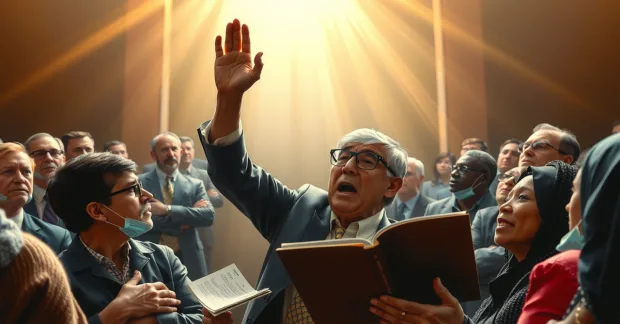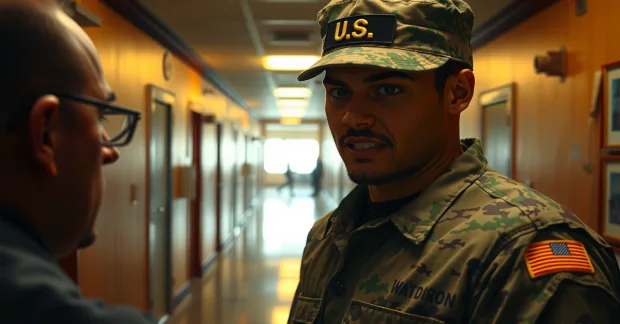
Piracy on the high seas is not just a relic of the past; it remains a significant threat to maritime security and global trade. The romanticized image of swashbuckling pirates with eye patches and parrots has given way to a more sinister reality: modern-day pirates armed with automatic weapons and sophisticated technology. This article delves into the complex and evolving landscape of maritime piracy, exploring the legal frameworks, international efforts, and the chilling tales of piracy that continue to haunt the world’s oceans.

The Legal Framework: UNCLOS and Beyond
The cornerstone of international piracy law is the United Nations Convention on the Law of the Sea (UNCLOS). Articles 100 to 107 and 110 of UNCLOS define piracy and outline the obligations of states to combat it. According to Article 101, piracy includes any illegal acts of violence, detention, or depredation committed for private ends by the crew or passengers of a private ship or aircraft on the high seas. This definition is crucial as it establishes the basis for international cooperation in the fight against piracy.
UNCLOS also mandates that all states cooperate to the fullest extent in the repression of piracy. This includes the seizure of pirate ships, the arrest of suspected pirates, and the prosecution of those responsible. However, the enforcement of these provisions often depends on the political will and resources of individual states, leading to varying levels of effectiveness in combating piracy.
National Laws and Jurisdiction
While UNCLOS provides a universal framework, individual countries have their own laws and regulations to address piracy. For instance, the United States criminalizes piracy under 18 U.S.C. § 1651, which mandates life imprisonment for those convicted. Other countries, like Japan and Germany, have stringent anti-piracy laws, whereas nations like Canada and Spain have more lenient regulations. This disparity in national laws can complicate international efforts to prosecute pirates, as jurisdictional issues often arise.
In some cases, countries have established specialized courts to handle piracy cases. For example, Kenya and the Seychelles have set up dedicated piracy courts to expedite the prosecution of suspected pirates. These courts have been instrumental in ensuring that pirates are held accountable for their actions, but they also face challenges such as limited resources and the need for international cooperation.
Modern Piracy: A Global Menace
Modern piracy is a far cry from the romanticized tales of the Golden Age of Piracy. Today, pirates are often part of organized crime syndicates, using advanced technology to track and hijack ships. The Gulf of Guinea, the Somali coast, and the Strait of Malacca are notorious hotspots for pirate attacks. These regions see frequent incidents of hijacking, kidnapping for ransom, and theft of valuable cargo.
The Gulf of Guinea, in particular, has become a major concern for maritime security. According to the International Maritime Bureau (IMB), the region accounted for over 90% of global kidnappings at sea in 2020. Pirates in this area are known for their violent tactics, often boarding ships and taking crew members hostage for ransom. The economic impact of these attacks is significant, with shipping companies incurring substantial costs for security measures and insurance premiums.
Case Studies: Chilling Tales from the High Seas
- The Maersk Alabama Hijacking: In 2009, Somali pirates hijacked the Maersk Alabama, a U.S.-flagged cargo ship. The crew managed to retake the ship, but the captain was taken hostage. The incident ended with a dramatic rescue by U.S. Navy SEALs, highlighting the dangers faced by seafarers and the lengths to which nations will go to protect their citizens.
- The MV Sirius Star Incident: In 2008, Somali pirates captured the MV Sirius Star, a supertanker carrying $100 million worth of crude oil. The pirates demanded a ransom, which was eventually paid, leading to the release of the ship and its crew. This incident underscored the financial motivations behind modern piracy and the economic impact on global trade.
- The MV Faina Hijacking: In 2008, Somali pirates hijacked the MV Faina, a Ukrainian cargo ship carrying 33 T-72 tanks and other military equipment. The pirates demanded a ransom of $20 million, which was eventually negotiated down to $3.2 million. The incident highlighted the potential security risks associated with the transportation of military cargo and the need for enhanced protective measures.
- The Arctic Sea Mystery: In 2009, the Arctic Sea, a cargo ship, was reportedly hijacked in European waters, leading to an international search. The ship was eventually found near Cape Verde, and the circumstances of the hijacking remain shrouded in mystery. This case demonstrated that piracy is not confined to traditional hotspots and can occur even in well-patrolled waters.
The Human Cost: Seafarers in Peril
The human cost of piracy is staggering. Seafarers face the constant threat of violence, kidnapping, and even death. According to the International Maritime Bureau (IMB), hundreds of crew members are held hostage each year, enduring harrowing conditions while awaiting rescue or ransom. The psychological trauma experienced by these individuals can have long-lasting effects, impacting their ability to return to sea.
In addition to the physical and psychological toll on seafarers, piracy also has significant economic implications. Shipping companies incur substantial costs for security measures, insurance premiums, and ransom payments. These costs are often passed on to consumers, leading to higher prices for goods and services. The economic impact of piracy is particularly pronounced in regions heavily dependent on maritime trade, such as East Africa and Southeast Asia.
International Efforts and Challenges
Combating piracy requires a coordinated international effort. The United Nations, through resolutions and conventions, has called for increased cooperation among states to patrol piracy-prone waters and prosecute offenders. Naval coalitions, such as the Combined Maritime Forces (CMF), conduct regular patrols and escort missions to protect commercial shipping lanes.
However, challenges remain. Jurisdictional issues, lack of resources, and political instability in piracy hotspots complicate enforcement efforts. Moreover, the legal process for prosecuting pirates is often lengthy and fraught with difficulties, as evidenced by the limited number of successful convictions.
One of the key challenges in combating piracy is the lack of effective governance in many piracy-prone regions. In Somalia, for example, the absence of a functioning central government has created a power vacuum that has been exploited by pirate groups. Efforts to address the root causes of piracy, such as poverty and lack of economic opportunities, are crucial to achieving long-term solutions.

New Thinking in the Fight Against Piracy
Innovative approaches are being explored to combat maritime piracy. These include:
- Technological Solutions: Advanced surveillance systems, drones, and satellite tracking are being deployed to monitor pirate activities and provide real-time alerts to ships. These technologies can help detect and deter pirate attacks, enhancing the safety of maritime trade routes.
- Private Security: Many shipping companies now employ private security teams to protect their vessels. These teams are often armed and trained to repel pirate attacks. The presence of armed security personnel on board ships has been shown to significantly reduce the risk of piracy, as pirates are less likely to target vessels that are well-defended.
- Community Engagement: Addressing the root causes of piracy, such as poverty and lack of economic opportunities, is crucial. Initiatives aimed at improving livelihoods in coastal communities can reduce the allure of piracy. For example, programs that provide education and vocational training can help create alternative sources of income for individuals who might otherwise turn to piracy.
- International Cooperation: Enhanced cooperation among states is essential to effectively combat piracy. This includes sharing intelligence, coordinating naval patrols, and providing support for capacity-building efforts in piracy-prone regions. International organizations, such as the International Maritime Organization (IMO) and the United Nations Office on Drugs and Crime (UNODC), play a key role in facilitating these efforts.
FAQ Section
What is the law for sea piracy? The law for sea piracy is primarily governed by the United Nations Convention on the Law of the Sea (UNCLOS), which defines piracy and outlines the obligations of states to combat it.
What is the punishment for piracy today? Punishments for piracy vary by country. In the United States, piracy can result in life imprisonment. Other countries have different penalties, ranging from long prison sentences to fines.
What is law of the sea Article 19? Article 19 of UNCLOS pertains to the right of innocent passage through territorial seas, which is unrelated to piracy. Piracy is covered under Articles 100 to 107 and 110.
What is the definition of piracy in modern day? Modern-day piracy involves illegal acts of violence, detention, or depredation committed for private ends by the crew or passengers of a private ship or aircraft on the high seas.
Should maritime piracy be governed by national laws? While international laws like UNCLOS provide a framework, national laws are crucial for prosecuting pirates and enforcing penalties. Effective governance requires both international and national legal frameworks.
Are violent acts against ships piracy under international law? Yes, violent acts against ships for private ends are considered piracy under international law, specifically under UNCLOS.
Is maritime violence a piracy? Maritime violence can be considered piracy if it meets the criteria set out in UNCLOS, including being committed for private ends on the high seas.
When did piracy become a problem? Piracy has been a problem for centuries, but modern piracy became particularly prominent in the late 20th and early 21st centuries, especially in regions like the Gulf of Guinea and the Somali coast.
Is maritime piracy a global problem? Yes, maritime piracy is a global problem affecting various regions, including the Gulf of Guinea, the Somali coast, and the Strait of Malacca.
What is new thinking in the fight against marine piracy? New thinking includes technological solutions, private security measures, community engagement, and enhanced international cooperation.
- Technological Solutions: Advanced surveillance systems, drones, and satellite tracking are being deployed to monitor pirate activities and provide real-time alerts to ships. These technologies can help detect and deter pirate attacks, enhancing the safety of maritime trade routes. For instance, the use of Automatic Identification Systems (AIS) allows ships to broadcast their location, making it easier to track and respond to potential threats.
- Private Security: Many shipping companies now employ private security teams to protect their vessels. These teams are often armed and trained to repel pirate attacks. The presence of armed security personnel on board ships has been shown to significantly reduce the risk of piracy, as pirates are less likely to target vessels that are well-defended. The use of private maritime security companies (PMSCs) has become a common practice, especially in high-risk areas like the Gulf of Aden.
- Community Engagement: Addressing the root causes of piracy, such as poverty and lack of economic opportunities, is crucial. Initiatives aimed at improving livelihoods in coastal communities can reduce the allure of piracy. For example, programs that provide education and vocational training can help create alternative sources of income for individuals who might otherwise turn to piracy. Community-based approaches also involve local stakeholders in the development and implementation of anti-piracy strategies, fostering a sense of ownership and responsibility.
- International Cooperation: Enhanced cooperation among states is essential to effectively combat piracy. This includes sharing intelligence, coordinating naval patrols, and providing support for capacity-building efforts in piracy-prone regions. International organizations, such as the International Maritime Organization (IMO) and the United Nations Office on Drugs and Crime (UNODC), play a key role in facilitating these efforts. Joint naval operations, such as the European Union Naval Force (EUNAVFOR) Operation Atalanta, have been successful in reducing piracy incidents off the coast of Somalia.
Key Takeaways
- Piracy remains a significant threat: Despite advancements in technology and international cooperation, piracy continues to pose a serious risk to maritime security and global trade.
- Legal frameworks are essential: International laws like UNCLOS provide a foundation for combating piracy, but effective enforcement requires the cooperation of individual states and the implementation of national laws.
- Modern piracy is organized and violent: Today’s pirates are often part of sophisticated crime syndicates, using advanced technology and violent tactics to achieve their goals.
- Human and economic costs are high: The impact of piracy extends beyond the immediate threat to seafarers, affecting global trade and leading to increased costs for shipping companies and consumers.
- Innovative solutions are needed: Technological advancements, private security measures, community engagement, and international cooperation are all crucial components of a comprehensive strategy to combat piracy.
- Addressing root causes is crucial: Long-term solutions to piracy must include efforts to address the underlying socio-economic conditions that drive individuals to engage in piracy.

Conclusion
Piracy in modern waters is a complex and evolving threat that requires a multifaceted response. While international laws like UNCLOS provide a framework for action, the reality on the ground—or rather, on the water—demands constant vigilance, innovation, and cooperation. The stories of modern piracy are a stark reminder of the dangers that lurk on the high seas and the ongoing battle to ensure the safety and security of maritime trade.
The fight against piracy is far from over, but progress is being made. Through a combination of technological advancements, private security measures, community engagement, and international cooperation, the maritime community is working to address the challenges posed by modern piracy. By understanding the intricacies of piracy law and the challenges faced by those on the front lines, we can better appreciate the importance of international cooperation in safeguarding our oceans.




















